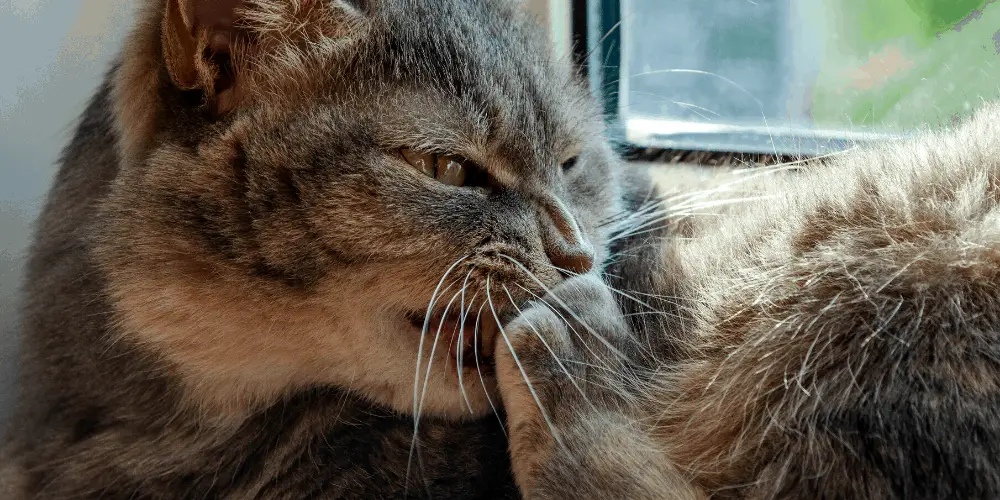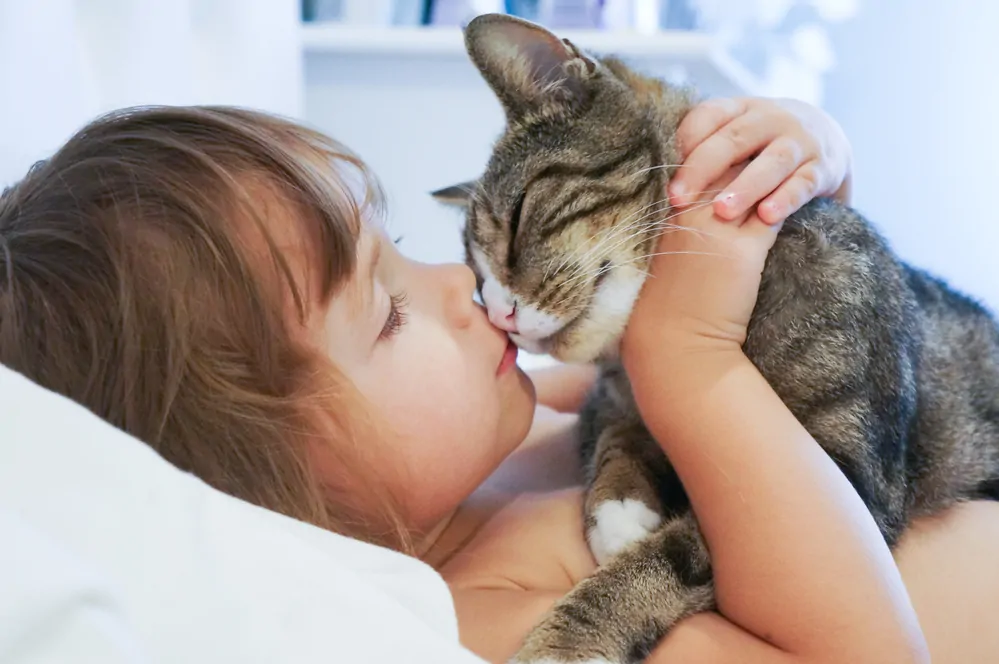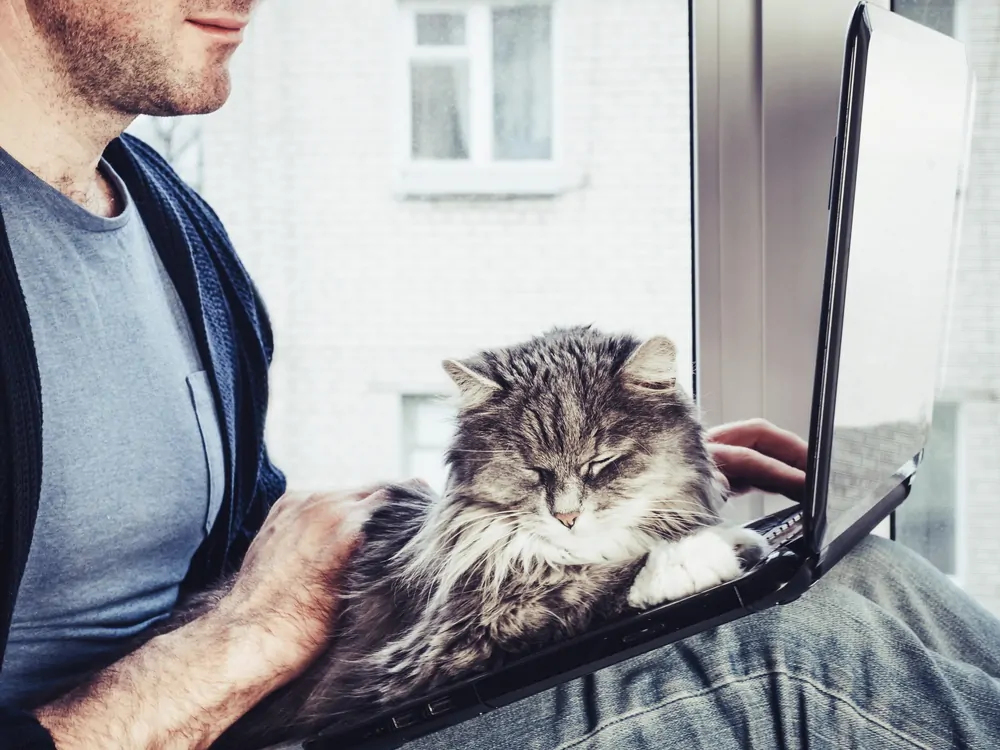Everyone knows that cats like to clean themselves most of the time, but why do cats bite their claws or nails?
Any cat owner has seen them do it and might not think anything of it, but the answer is interesting nonetheless.
Cats groom themselves by biting at their claws to remove the outer layer of the claw, exposing newer, sharper claws. This is perfectly normal and is nothing to worry about most of the time.
Difference between Dog Nails and Cat Claws
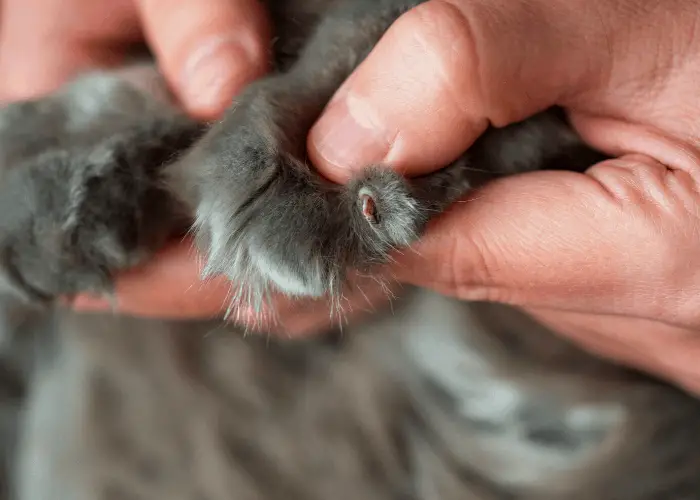
If dog owners neglect to keep their dog’s nails trimmed, they can get long and start curling under the dog’s toe pads.
You may occasionally find a dog biting and pulling at their nails to try to remove this problem on their own. Typically, it doesn’t work out too well and can be a painful experience for the dog.
Cats, on the other hand, have claws that will only grow to be so long. Once they get to a certain length, the outer surface of the claw becomes brittle, and most of the time is removed by the cats chewing or biting at their claws.
Understanding the Cat Claw
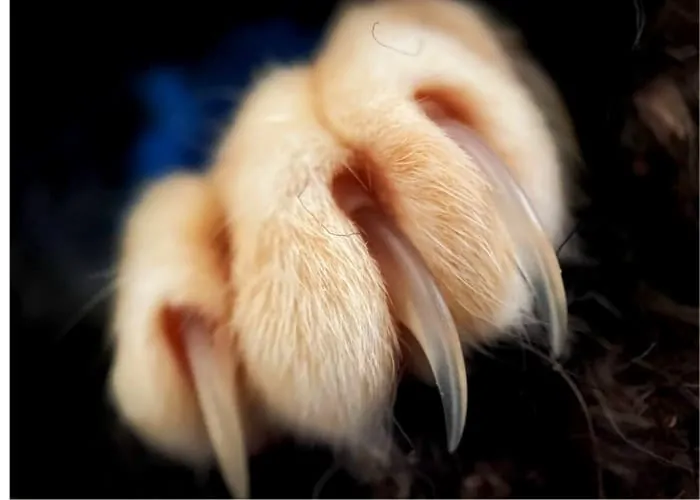
From time to time, a cat owner might find an abandoned claw. Perhaps lying on the floor or even stuck to something like the arm of a couch or scratchpad.
After finding something like that, you might search out your cat and inspect its claws, to find that all are there and accounted for.
So, what happened?
Unlike our nails that grow just under our cuticles, being pushed out linearly as they continue to grow, cats’ claws grow from within the claw.
When our nails grow too long, we cut or trim them to the length that we want. A cat, in contrast, they pull the worn and dulled outer layer off, exposing nice, sharp and new claws.
They can pull them off with their teeth, or the outer layer might come off when scratching at the scratchpad (or the couch). So, this is why we find thin pieces of claw here and there every so often.
Why Do Cats Bite their Claws or Nails? – Other Reasons
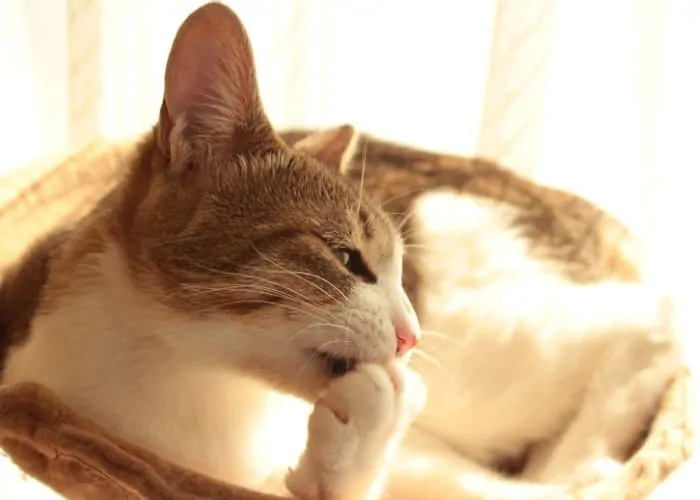
Despite knowing that nail-biting is a grooming technique that cats use, there are other reasons why they do it- not all of them are good or normal. Sometimes, it can be due to something affecting their health.
It’s a good idea to keep your eye on your cat’s behavior if you find the claw chewing becomes excessive. Also, it would help if you tried to distinguish between chewing and cleaning the claw area.
Just like chewing at their claws, cleaning or licking the claw area is just as common, and doesn’t mean there’s a problem.
It’s the frequency, as well as the intensity that should be catching your attention. If you find it to be excessive, there might be a certain set of problems to look into.
Infection or Injury
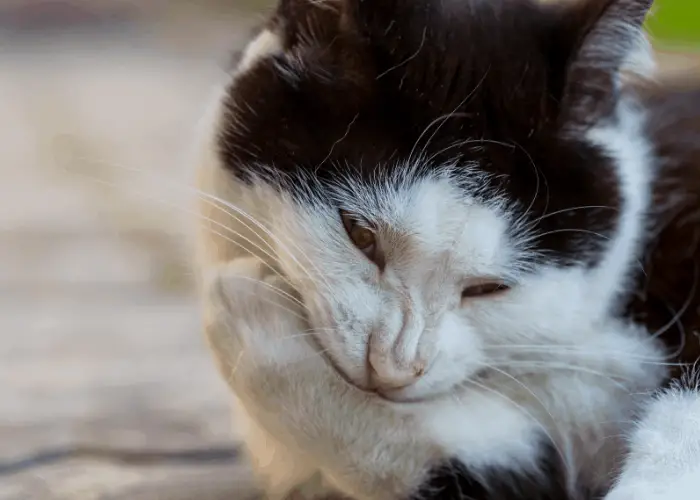
Irritation or injury can occur to either an indoor or outdoor cat. When you think about it, it’s kind of amazing that cats don’t suffer from injuries on their paws all the time!
After all, they can act kind of crazy- much crazier than we would dare to in our bare feet, and are certainly more daring than our K9 friends in most circumstances.
If a cat tends to obsess over chewing or cleaning their claws, give them a look to see if there are any signs of an infection or injury.
Good places to look are the paw pads and in between them. Push on the pads to extend the claw and see what’s going on.
For an untrained eye, check out a claw from a leg that the cat might not be paying so much attention to, and compare the claw to see if you notice any difference.
If upon comparison, you find the favored paw has irritations, there may be an infection going on.
Cats are resilient animals. They routinely give themselves a pounding and tend not to complain if they’re suffering.
A quick trip to the vet would be advisable if you do find any irritation around the claws, or even if you find an injury.
Is Your Cat Anxious?
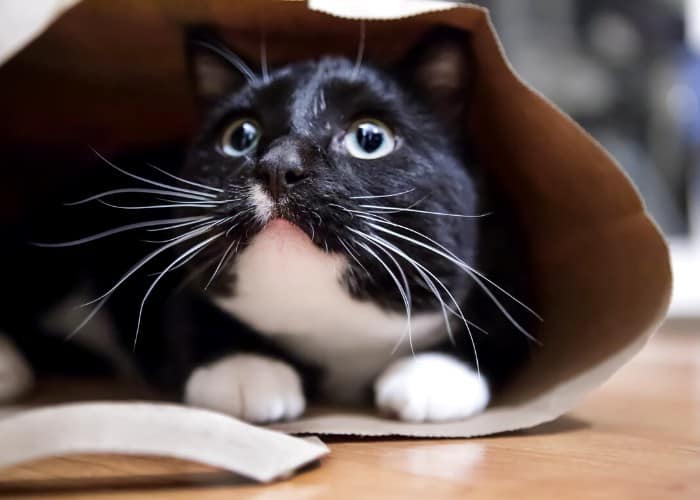
Anxiety is another reason why your cat might be obsessed over their claws. Perhaps this is an area where cats and humans share a strange trait.
Many chew their nails when they’re anxious; cats can wind up doing the same thing.
Upon inspection, if their paws are in good shape yet continue to obsess, then it might be time to investigate if there are any reasons why the cat might be anxious.
If you’re able to root out this problem, you’ll not simply give them less reason to chew, but they’ll be happier.
If you have an anxious cat, several factors may be triggering this response. Other animals in the house could be one reason, change in surroundings, or even obstacles that they can’t tackle or overcome.
As it turns out, indoor cats tend to wind up having more excuses to be anxious than outdoor cats. At least it seems that way. Many of the things that create anxiety in cats are eliminated when outdoors.
Whether you’re willing or able to let your indoor cat outside is up to you. If not, then you’re going to have to do some detective work to find out what it is’s stressing your cat out.
The good news is, if you notice the cat is chewing much less than usual, you might have hit the nail on the head and eliminated the true problem.
The bad news is, they aren’t going to tell you what’s making them anxious, so due diligence is going to be necessary.
Conclusion
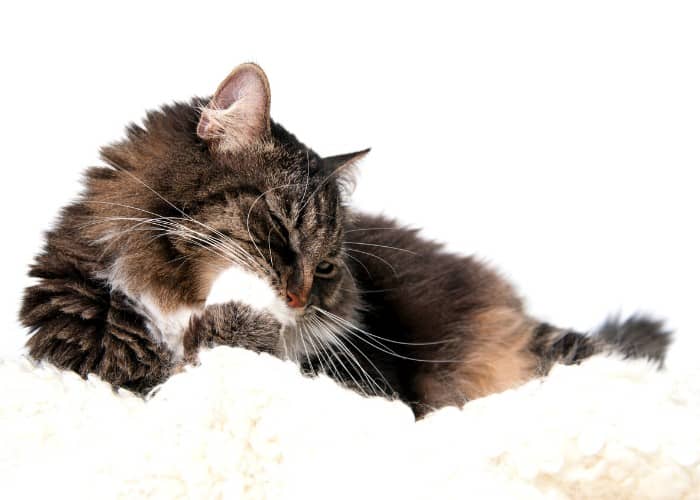
Claw chewing is normal behavior with cats.
Excessive claw chewing isn’t and is a sign we need to use to determine whether or not there are any problems.
As stated above, they’re tough little animals and don’t complain much. If you haven’t already, it’s a good idea to go and check out your cat’s claws- even if it’s not showing any weird signs of any problems.
If you learn what normal claws and paw pads look like, then you’ll be able to spot any issues if they should arise through time.
You’ll have a frame of reference and will tell whether or not around the cat’s claw is swollen or infected.
But if for any reason you have doubts and aren’t sure what you’re looking at, or can’t figure out why your cat is paying too much attention to its claws, your vet can check into issues that you can’t.
It’s always best not to leave things to chance when it comes to our pets.
